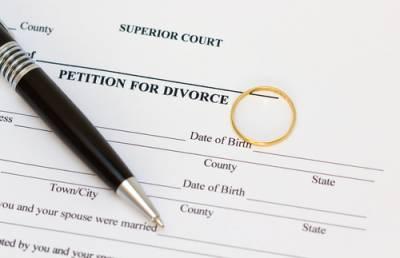Recent Blog Posts
Four Common Examples of Asset Dissipation During Divorce
 Perhaps you and your spouse have not been getting along for years. You may have contemplated divorce, and even discussed it, but neither of you took the initiative. Now, it’s 2026, and your spouse appears to be spending large amounts of money somewhere, and you are worried.
Perhaps you and your spouse have not been getting along for years. You may have contemplated divorce, and even discussed it, but neither of you took the initiative. Now, it’s 2026, and your spouse appears to be spending large amounts of money somewhere, and you are worried.
Financial trouble is a very common reason for divorce. A spouse who has simply always had a bad spending habit may leave both spouses in serious debt without any clear solution. In certain situations, a spouse's wasteful spending may be bad enough to be considered "asset dissipation."
If you are wondering if your spouse's behavior qualifies as dissipation, you need to discuss your case with an Illinois divorce attorney. If your attorney believes you have a case for asset dissipation, you will need to make your case in Court.
What is Asset Dissipation?
The word dissipation essentially means "waste." In the context of divorce, Illinois law defines dissipation as using marital property (usually money) for the sole benefit of one spouse, for things unrelated to the marriage, while the marriage is permanently breaking down. Asset dissipation claims are often also called "marital waste" claims.
Can You Get Divorced Without Going to Court?
 Many couples going through divorce in Cook County worry about spending months in Court battles. Fortunately, many divorces in Illinois can be resolved with little or no time in a courtroom. Under Illinois law, couples who agree on the terms of their divorce can often finalize everything through paperwork alone.
Many couples going through divorce in Cook County worry about spending months in Court battles. Fortunately, many divorces in Illinois can be resolved with little or no time in a courtroom. Under Illinois law, couples who agree on the terms of their divorce can often finalize everything through paperwork alone.
This process, known as an uncontested divorce, allows you to end your marriage more quickly and privately than traditional litigation. However, even uncontested divorces have specific requirements under the Illinois Marriage and Dissolution of Marriage Act that must be met.
At The Law Office of Nicholas W. Richardson, P.C., our Barrington, IL divorce attorney understands couples who want to get divorced in 2026, with the minimum amount of mess. We can help you keep your divorce peaceful and straightforward. Call us today.
What is a Default Divorce and When is it Used in Illinois?
 The divorce process in Illinois begins when one spouse files for divorce independently or with an attorney. The CDC estimates that about 675,000 divorces are filed every year. Most of these divorces involve couples who agree that their marriage is over, and most cases settle out of Court.
The divorce process in Illinois begins when one spouse files for divorce independently or with an attorney. The CDC estimates that about 675,000 divorces are filed every year. Most of these divorces involve couples who agree that their marriage is over, and most cases settle out of Court.
However, in a few of these cases, one spouse simply won’t participate in the divorce process. People in these uncertain situations are left with a lot of questions. Can you get divorced if your spouse won’t respond to your divorce petition? What happens with issues like child support, alimony, and child custody? What happens to the assets you own together?
What to Expect from Mandated Parenting Classes in an Illinois Divorce
 Divorcing parents in Illinois face many requirements as they navigate the legal process, and one mandate catches nearly everyone by surprise: the parenting class. Most parents assume they already know how to parent their children, so the idea of attending a Court-ordered class can feel unnecessary or even insulting.
Divorcing parents in Illinois face many requirements as they navigate the legal process, and one mandate catches nearly everyone by surprise: the parenting class. Most parents assume they already know how to parent their children, so the idea of attending a Court-ordered class can feel unnecessary or even insulting.
However, these classes serve a specific purpose that goes beyond basic parenting skills. The parenting education programs focus on helping children adjust to divorce and teaching parents how to minimize conflict during one of the most stressful times in a family's life.
As of 2026, Illinois Supreme Court Rule 924 still requires all parents involved in divorce or child custody cases with minor children to complete a Court-approved parenting education program. This requirement applies to divorcing parents throughout Northwest Cook County and its communities.
What Should I Do if My Ex-Spouse Will Not Pay the Divorce Settlement?
 The property settlement is often one of the most hotly contested aspects of a divorce case due to the financial stakes at play. Giving up a substantial portion of one's wealth is not easy for some divorcing spouses to accept. Although many people find a way to make peace with this part of ending their marriage, others go to great lengths to avoid complying with the Court's orders or fulfilling the negotiated agreement.
The property settlement is often one of the most hotly contested aspects of a divorce case due to the financial stakes at play. Giving up a substantial portion of one's wealth is not easy for some divorcing spouses to accept. Although many people find a way to make peace with this part of ending their marriage, others go to great lengths to avoid complying with the Court's orders or fulfilling the negotiated agreement.
If you are dealing with an ex who refuses to comply with the terms of your divorce settlement, Illinois law has several options for enforcement. With guidance from an Arlington Heights, IL post-decree enforcement lawyer, you can take the proper steps to secure the money or property you are owed.
How Is a Divorce Settlement Legally Binding in Illinois?
Once your divorce is finalized, your settlement becomes part of the Court’s Judgment of Dissolution of Marriage. Under 750 ILCS 5/502, the Court incorporates your settlement into its final order, giving it the same legal weight as any other judgment. Your ex-spouse must complete every payment and property transfer as listed in the order. A divorce settlement may cover:
What Happens at Your First Meeting with a Divorce Attorney?
 Meeting with a divorce attorney for the first time can feel intimidating. Even though this is a new experience for you, there is no reason to be nervous. An experienced attorney conducts consultations regularly and will help you feel comfortable and heard.
Meeting with a divorce attorney for the first time can feel intimidating. Even though this is a new experience for you, there is no reason to be nervous. An experienced attorney conducts consultations regularly and will help you feel comfortable and heard.
Your initial consultation is more than just a formality. You have the opportunity to take control of your situation, receive honest legal guidance, and begin planning a strategy for what comes next. Try to relax and maximize your time.
At The Law Office of Nicholas W. Richardson, P.C., our Northwest Cook County family lawyer has more than 15 years of experience guiding clients through every stage of the divorce process. Schedule a free consultation with our office and find out why we have a 5-star rating on Google.
Getting Ready for Your First Consultation with a Divorce Lawyer
Walking into the attorney’s office with the right information makes the process much smoother. Before you leave home, put together any documents you already have, such as financial statements, tax returns, pay stubs, real estate records, and prenuptial or postnuptial agreements. These documents will help an attorney understand your situation quickly and offer more specific, tailored legal advice.
Can I Receive Retroactive Child Support in Illinois?
 Child support is meant to ensure that children have money for basic expenses, even when their parents no longer live together. But what happens if one parent has not paid support for months or even years? Can the other parent go back and recover what should have been paid? In Illinois, the answer depends on the specific circumstances of the case.
Child support is meant to ensure that children have money for basic expenses, even when their parents no longer live together. But what happens if one parent has not paid support for months or even years? Can the other parent go back and recover what should have been paid? In Illinois, the answer depends on the specific circumstances of the case.
At The Law Office of Nicholas W. Richardson, P.C., our Barrington child support attorney works with parents to get the child support they need, even when it is not easy. If you are wondering whether you can get back paid child support, talk to us today and let us help.
What Does Retroactive Child Support Mean?
Retroactive child support refers to payments owed before a Court enters an official support order. For example, if a parent filed for support in January but the Court did not finalize the order until July, the judge could make the paying parent cover the six months in between.
Do I Have to Let My Ex’s New Partner Babysit My Kids?
 Divorce or separation does not end parental responsibility or concern for children. In many cases, this concern only grows once the kids are spending time with only one parent, away from the watchful eye of the other.
Divorce or separation does not end parental responsibility or concern for children. In many cases, this concern only grows once the kids are spending time with only one parent, away from the watchful eye of the other.
One of the most common questions that parents face after a divorce is whether they have to allow their ex’s new partner to babysit their children. Many parents feel uncomfortable at the thought. Worries about neglect or abuse, different values, or the threat of replacement can make an ex’s new romantic partner a sensitive and unsettling issue.
If you are in this situation and want to know what your options are, the first thing to do is make sure you understand the law in Illinois and how Courts approach this issue. Our Rolling Meadows family law attorney offers free consultations and can explain your rights and responsibilities when it comes to child custody and an ex’s partner.
Can My Ex Use My Social Media Against Me in Court?
 Divorce can make every detail of your personal life feel like you’re under a magnifying glass. In today’s world social media posts make this even more true. Many people wonder whether their online activity could come back to hurt them during divorce. The short answer is yes — your ex may be able to use your social media content against you in Court.
Divorce can make every detail of your personal life feel like you’re under a magnifying glass. In today’s world social media posts make this even more true. Many people wonder whether their online activity could come back to hurt them during divorce. The short answer is yes — your ex may be able to use your social media content against you in Court.
In Illinois divorces, Judges regularly see Facebook posts, Instagram photos, and text conversations introduced as evidence. Posts about yourself, your ex, and your kids could be used as potential evidence if they are relevant and authentic. Learn more about this, and how to protect your online content from affecting your divorce, by calling our Inverness divorce lawyer.
How Can Social Media Be Used as Evidence?
Divorce cases often involve disagreements about credibility. One spouse might say things about his or her finances, parenting style, or lifestyle, but social media posts can say something else. Judges may view online evidence as a way to confirm or challenge testimony given in Court.
Three Differences Between a Contested and Uncontested Divorce in Illinois
 Understanding the type of divorce you are facing can help you prepare for what lies ahead. Broadly speaking, divorces in Illinois fall into two categories: contested and uncontested. These terms describe whether you and your spouse are in agreement about major issues such as property division, child-related matters, and support. Knowing the difference is not just a matter of legal terminology; the type of divorce you file for will determine the time, cost, and often the emotional toll of the process.
Understanding the type of divorce you are facing can help you prepare for what lies ahead. Broadly speaking, divorces in Illinois fall into two categories: contested and uncontested. These terms describe whether you and your spouse are in agreement about major issues such as property division, child-related matters, and support. Knowing the difference is not just a matter of legal terminology; the type of divorce you file for will determine the time, cost, and often the emotional toll of the process.
As of September 2025, Illinois divorce law continues to allow couples to dissolve their marriages either through an uncontested settlement or through contested litigation. The Illinois Marriage and Dissolution of Marriage Act (750 ILCS 5) governs both types of proceedings. Our Arlington Heights divorce attorney can review your situation to help you decide which type of divorce will best suit your case.
Introducing The Law Office of Nicholas W. Richardson
Nicholas W. Richardson is an experienced divorce lawyer and mediator whose comprehensive legal knowledge, commitment to clients and reputation for results bring lasting solutions to your problems.






